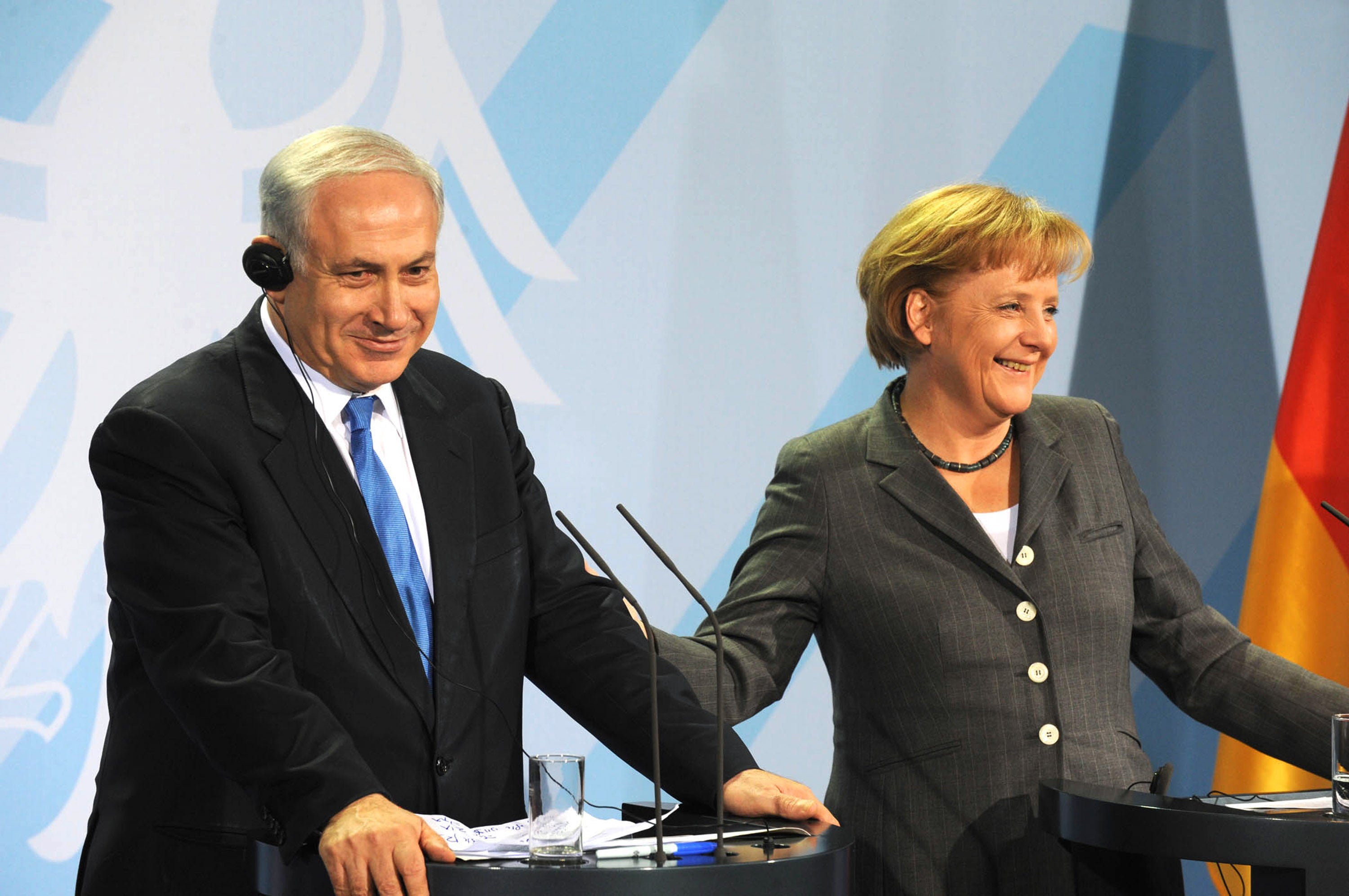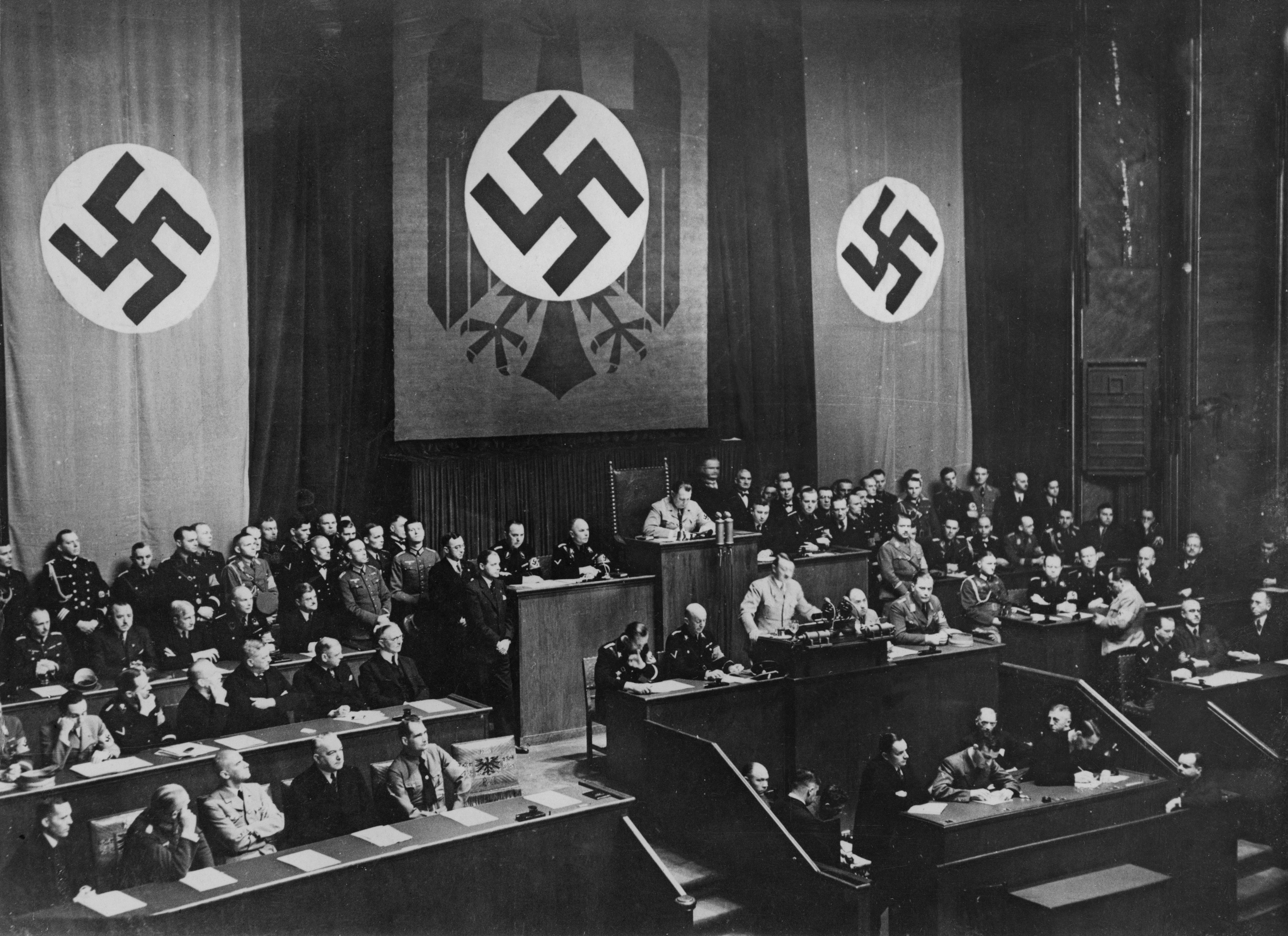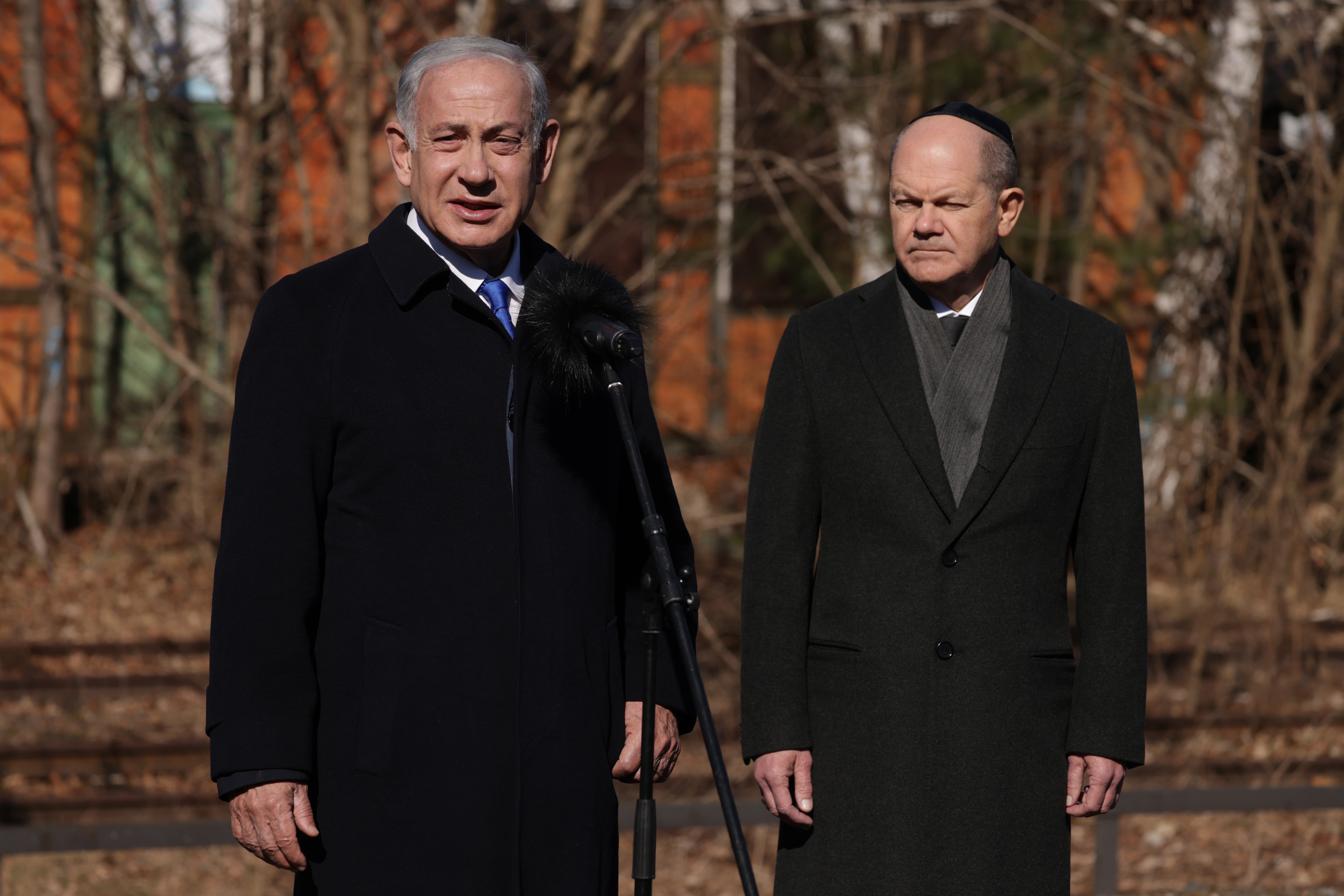Germany’s Nazi history has left it in turmoil over how to treat Israel
Germans have long been praised for their culture of remembrance and coming to terms with the crimes of the Nazis, writes John Kampfner. But this has turned into a level of support for Israel that is leaving many too scared to speak out about war in Gaza and Lebanon

Two events took place last weekend in Germany. At a conference in Berlin called The Big Chill, a group of thinkers and activists denounced what they called “anticipatory obedience” in which Germans, including Jews, had been “muted, de-platformed and stigmatised” for criticising Israel’s response to the atrocities of 7 October 2023.
At the same time, in a small town called Zeitz in eastern Germany, 10 “stumbling stones”, small memorial brass plates denoting the homes of Jews taken to be exterminated in concentration camps, were ripped up. “Whoever did this wants to tear the Holocaust out of our memory,” a leading local politician, Götz Ulrich, declared.
The sad fact is both sets of assertions are largely true. And yet, it was a weekend like any other and neither event received particular coverage.
Over the past year, since the Hamas attack, Germany has been in turmoil about both its government’s approach to Israel, Gaza and beyond, and the domestic consequences of the Middle East warfare on its own society.
Germans have long been praised for their Erinnerungskultur, culture of remembrance, and for their Vergangenheitsbewältigung, coming to terms with Nazi crimes. Indeed, it could be said it became a national “brand”.
In 2008, a speech given by Angela Merkel to the Knesset, the Israeli parliament, took the approach to a new level. The then-chancellor declared that support for Israel was an integral part of the Staatsräson – the very essence of the state. In effect, she was saying that Germany would from now on define itself by the strength of its support for Israel, come what may.
And that is exactly what has happened. For the past two decades, it has been Israel’s second-largest supplier of weapons, only slightly below the level of the United States. Much of the equipment used by the IDF, the Israeli army, in its combat against Hamas, Hezbollah and other forces in recent months was made in Germany.
In 2017, Germany was one of the first governments to adopt the International Holocaust Remembrance Alliance’s definition of antisemitism, which views most forms of anti-Zionism as antisemitic. The following year, the Bundestag adopted a resolution condemning the “boycott, divestment, sanctions” campaign against Israel. It also forbade state funds from going to organisations deemed to support the movement.

The state goes to ostentatious lengths to demonstrate its allegiance to Judaism and Israel (seen in Germany as one and the same thing). Commemorating the Shoah (the Hebrew term used to describe the genocide perpetrated by Nazi Germany) is ubiquitous, often highly formalised. Jewish institutions receive round-the-clock protection, which is both a positive (that the authorities leave nothing to chance and pick up the tab) and a negative (that these locations are felt to be vulnerable in the first place).
Everywhere you go in Germany, you are confronted by the past. I have been moved to tears by church services and by memorials. I have visited many concentration camps and other sites of horror. Sometimes it feels abstract. Other times, it feels very close. Like now.
The single statistic that shocked Germans was that 7 October constituted the largest murder of Jews on any one day since the Holocaust. Olaf Scholz, the chancellor, made sure he was the first foreign leader to visit Israel straight after the attacks. As Annalena Baerbock, the foreign minister, put it, that moment marked a turning point, with a “before” and “after”.
The moral outrage was palpable. The problem was what happened next – the bombardment and almost complete destruction of Gaza, with the deaths of tens of thousands of Palestinians and now similar attacks on Lebanon. As Germans watched the (generally balanced) coverage on TV, many were alarmed and perplexed.

Were they allowed to express the view that Benjamin Netanyahu was a) meting out revenge on innocent civilians, b) prolonging the conflict in order to keep himself in power and away from corruption charges, c) a right-wing populist in the mould of Donald Trump and Viktor Orban? And if they weren’t allowed to air points of view that were prevalent in, say, France or the UK, then would it ever be acceptable for them to criticise Israel about anything, they wondered?
Many on the left say these questions have already been answered. They point to a string of artists, authors, academics and others who have been disinvited from events and threatened with the loss of state funding if they either criticise Israel or express support for the Palestinian cause.
The American Jewish historian Susan Neiman described the atmosphere as “philosemitic McCarthyism“. The columnist Daniel Bax talked of “authoritarian tendencies”, arguing that “Germany must decide between Staatsräson and international law”.
Indeed, it could be argued, and indeed is argued by some in Germany, that even Joe Biden has been more critical of Netanyahu than Scholz has been. As with Russia and Ukraine, the three-party coalition in Berlin struggles to explain itself.

In recent months, as the scale of the Israeli military response has grown ever greater, the tone has changed, but only marginally. The German government has privately let it be known that the number of arms licences for Israel is sharply down, but in public denies that. And even if the number of sales has dropped, that is explained in part by the fact that many approvals were fast-forwarded in October and November 2023.
The politics are acrimonious and messy. Scholz’s Social Democrats and the Greens are confused and, in some cases, split. Not so for the opposition CDU, which has been staunch in its support for Netanyahu’s government. As for the far-right AfD, it is exploiting the tension, marching in support of the Jewish community, but with the sole aim of stoking hostility to immigration in general and Muslims in particular.
One of the saddest aspects of all of this is that police and local authorities report a steady increase in both antisemitic and Islamophobic incidents. Meanwhile, over this weekend and every weekend, more protests on both sides of the divide take place, alongside more events on combating intolerance.
Germany’s increasingly diverse and fractured population is confronting a worrying present, while continuing to be smothered by the ghosts of the past.
John Kampfner’s latest book, In Search of Berlin, is published by Atlantic





Join our commenting forum
Join thought-provoking conversations, follow other Independent readers and see their replies
Comments